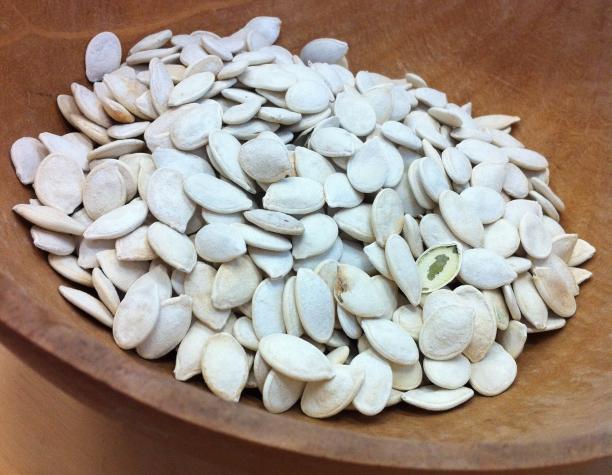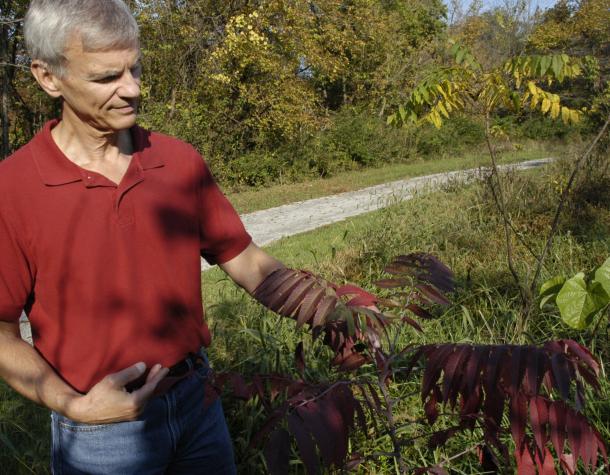
MU expert recommends precautions to avoid frozen pipes
COLUMBIA, Mo. – Temperatures hovering near zero could mean problems with frozen water lines. Homeowners should take precautions to prevent pipes from freezing and know to how to thaw frozen pipes safely, according to University of Missouri Extension experts.
Elderly at special risk during frigid weather
COLUMBIA, Mo. –Frigid weather across the Midwest puts the elderly at special risk, said a University of Missouri Extension safety specialist. “Elderly in poorly heated homes or those of low income may unknowingly keep temperatures in a dangerous range in attempts to lower their heating bills.” said Karen Funkenbusch.
Making merry without putting on pounds
INDEPENDENCE, Mo. –The holidays – a time for parties, food and drink. It’s also a time for temptation when you’re trying to watch your weight. But denying yourself the foods you love usually doesn’t work. “Moderation is the key. Eat the food that’s there, but limit your portion sizes,” said Tammy Roberts, nutrition specialist for University of Missouri Extension. “Just take a single bite of the high-calorie, high-fat foods you love.”

Keeping the Christmas tree in good shape through the holiday
Learn how to pick a fresh Christmas tree, care for it with water, and keep it safe and vibrant through the holiday season.
How to hobgoblin safely
Halloween safety tips help families protect children while trick-or-treating. Learn costume, candy, and neighborhood precautions.

Pumpkin seeds are too good to waste
BUTLER, Mo. – One of the best rewards during pumpkin season are the seeds. They taste great, can be flavored in multiple ways and are great for snacks and salad toppers. When you first remove the seeds from the pumpkin, however, it’s kind of a slimy mess. But it’s easy to clean them up.
Ways to make Halloween healthy
BUTLER, Mo. – It won’t be long before pint-sized Princess Elsas, Star Wars characters and Minions run through neighborhoods threatening tricks and demanding treats.Halloween doesn’t have to be a complete sugar-overload holiday. There are simple things that parents can do to keep it fun and healthy.First, don’t send the little ones out on an empty stomach, said Tammy Roberts, nutrition specialist for University of Missouri Extension.
Help children enjoy Halloween without candy overload
Enjoy a healthier Halloween with fun alternatives to candy. Try non-sugary treats, teach kids moderation, and keep them safe while they trick-or-treat.
Safety tips for Halloween
CHILLICOTHE, Mo. – Halloween should be a fun time for dress-up, parties and yummy treats. Taking a few precautions before your kids head out the door can go a long way toward keeping them safe, said a University of Missouri Extension human development specialist.A “dress rehearsal” a few days before Halloween can help spot problems with your child’s costume, said Jessica Trussell.
Use Halloween to teach children about moderation and healthy choices
LAMAR, Mo. – The doorbell rings. Ghosties and ghoulies shout “Trick or treat!” as you open the door. They reach toward you with bags and containers, waiting for the bounty you are about to bestow. Though candy is the typical Halloween fare, you can hand out a healthier ransom.

Timing is everything for vivid fall colors
COLUMBIA, Mo.—Despite their association with fall colors, you’ll want Jack Frost and Indian Summer to stay away if you’re hoping for vivid autumn leaves.According to folklore, Jack Frost turns leaves red and purple when he pinches them with his icy fingers. In fact, a hard freeze is the last thing you want for colorful fall leaves, said Stephen Pallardy, a University of Missouri forestry professor.
Renters can save money with simple energy practices
FARMINGTON, Mo.– Renters as well as homeowners can save money by using less energy at home. A lot of simple practices can cut renters’ energy costs every month, says Rebecca Blocker, University of Missouri Extension housing and environmental design specialist. One practice is to minimize “vampire” energy.
Get involved! The secret to college success
Remember, college is an experience!You graduated from high school and in the fall you will be a first year student in college. This means new places, new people, and new routines. This change of scenery can be both exciting and intimidating. Whether you're attending a community college, university, or trade school, the BEST way to deal with all the change is to GET INVOLVED!
Mistakes to avoid during your freshman year
You've never been to college before, you are bound to make a few mistakesCollege is a totally new experience! It's okay to make mistakes along the way, it's going to take time to figure out how it all works. However, hopefully we can save you from costly errors. Check out some of the most common mistakes freshman make below.
Bruin Manufacturing Co.
Bruin Manufacturing boosted sales, productivity, and workforce using strategic improvements and modernized systems.
Omaha Steel Castings Co., LLC
The challenge Omaha Steel, a 112-year old company, is an established name in the steel castings industry. In 2014, new owners took possession of assets, including a state-of the-art production facility. Omaha Steel was operating at 40 percent of capacity, which is reflective of the U.S.
Hastings Irrigation Pipe Co.
Manufacturer of aluminum irrigation pipes, fittings, pumps, fabrications and powder coating faces rising global competition.
National College Advising Corps to receive national honor for volunteer service
Chicago, IL- On Thursday, June 14, 2012, the National College Advising Corps received the 2012 National Service Impact Award from the Corporation for National and Community Service (CNCS) in Chicago.
Mediterranean diet
The Mediterranean diet is known for boosting health and lowering risk for chronic diseases like heart disease, high blood pressure and certain cancers.
Dietary Guidelines for Americans
Every five years the U.S. Departments of Agriculture and Health and Human Services publish the Dietary Guidelines for Americans. These guidelines are developed by an expert panel of nutrition and health professionals to help all Americans consume a healthy and nutritionally adequate diet.
Green up your eating plan
Boost your meals with fresh or cooked greens. Learn storage, preparation, and tips for seasonal leafy vegetables.
Don’t be fooled by fancy food labels — read the ingredients
These days many people are very intentional about selecting healthy and nutritious foods for themselves and their families. And yet even the most conscientious may be fooled by fancy food labels that cleverly make consumers think they are getting something better than they are. Some tricks have been around for a long time. Here are some described in the April 2011 issue of Nutrition Action HealthLetter.
Food labeled as “natural” isn’t necessarily healthy
According to an August 2008 issue of Tufts University Health & Nutrition Letter, we are spending $13 billion per year on foods labeled as “natural.” The word “natural” makes it seem like the food is better for you, but that isn’t necessarily the case.
Summer can create challenges for food budget
It is important to provide balanced, nutritious meals for your children throughout the summer. Unfortunately, summertime can pose challenges to the family food budget because children are eating more meals at home.
